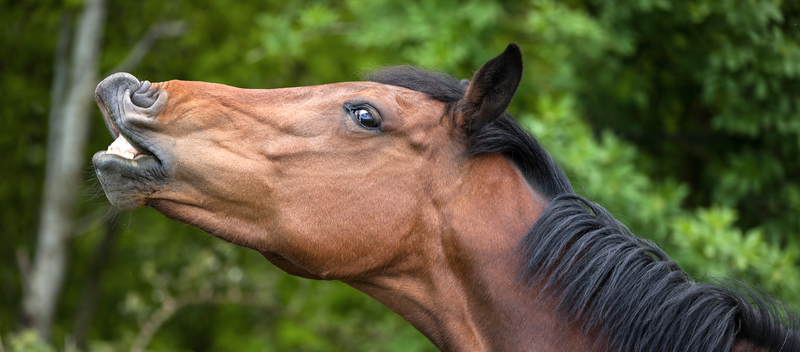Pacific View Equine Offers Motorized Equine Dentistry ( floating )!
Why Do Horses Need Dental Care?
- Horses teeth continue to erupt until they are between the ages of 25-30. Horses teeth are design to consume their natural food source of grass. The fibers of grass are much courser that the hay we typically feed, which naturally polishes the surface of the molars, reducing the sharp points. Hay and less fibrous feeds are less abrasive and can wear the teeth unevenly. Over a period of time this uneven wear will cause sharp points, hooks, and other problems to develop. To correct these problems, horses teeth should be inspected annually and have a dental ( float ) performed when appropriate.
What Will Happen If I Do Not Float My Horses Teeth Regularly?
- Failure to keep teeth maintained can cause discomfort and pain in the mouth. Sharp points can cut into tissues of the mouth and hamper ability to properly grind food. Dominant teeth may even wear on other teeth inappropriately, leading to wave and step patterns which can lead to premature tooth loss and infection. More significant changes can even lead to a misalignment of the jaw.
How Often Should My Horses have a Dental?
- It’s recommended that your horse’s teeth be checked annually. Dr. McKnight typically will inspect teeth, when he does vaccinations (Generally every 6 months).
Generally around the age of two, is when we expect a horse will need it’s first dental. However, we recommend checking the teeth beginning at 6 months of age to assess for proper eruption.
Subsequently most horses will need to be floated every 1-2 years depending on the their diet, and individual wear pattern.
What are Signs That My Horse May Need a Dental?
- Indications of potential dental issues are: loss of weight, excessive salivation when eating, eats slowly with effort, drops bits of partially chewed food (quid), and are having issues with bit contact.
What Is Motorized Dentistry and Why Does Dr. McKnight Use This?
- Dr. McKnight uses Power Float equipment in his practice. This is motorized dental equipment that allows him to reduce the sharp points of the teeth more quickly and effectively. This allows for a better result than hand floats alone, and is more comfortable for the horse!
What is Dr. McKnight’s Experience in Using this Equipment?
- Dr. McKnight has been using Motorized dental Equipment since graduating in 2004! While at Pilchuck Veterinary Hospital outside Seattle, he had the privilege of working with Dr. Robert Gegory, a veterinarian specializing in equine dentistry. Dr. McKnight also attends various continuing education seminars to remain current on new procedures and recommendations for dental changes.
What is The Process of Having This Done?
- A dental exam is performed and if uneven wear or sharp points are detected, he will recommend the horse have a dental.
The horse will be sedated with a mild sedative.
When sedate, Dr McKnight will place a speculum in the horse’s mouth to allow for a more thorough exam.
Any sharp points, arcade imbalance, and other dental problems will then be corrected.

